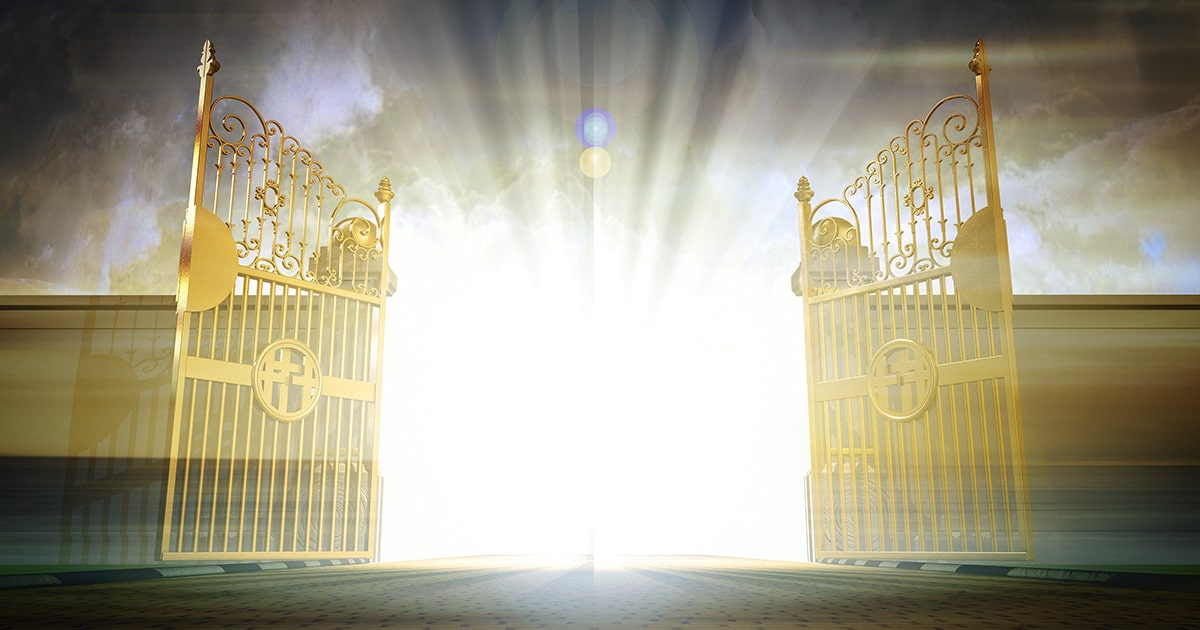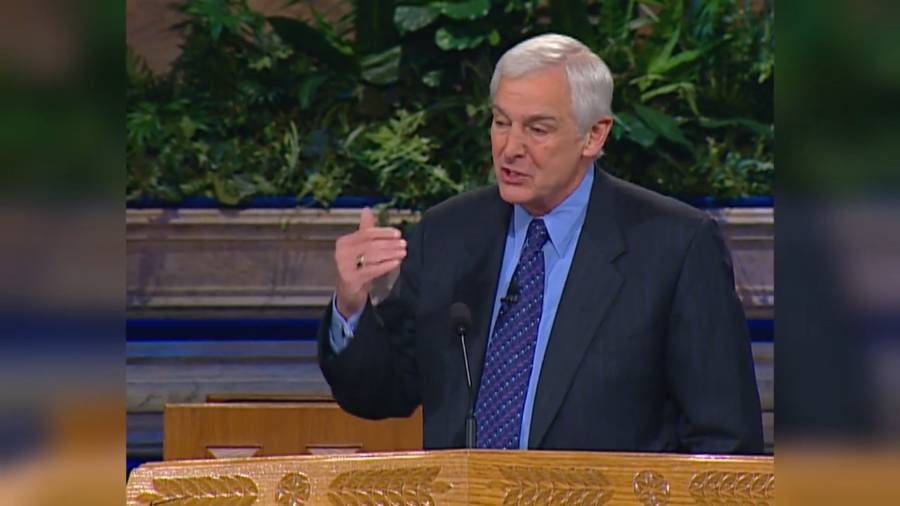
Do Babies Go to Heaven? The Truth About Kids in Heaven
By David Jeremiah
When a child dies, our mind floods with questions to which there are no simple answers. Why would God allow this to happen? What will become of him or her? How can I go on?
Indeed, it can be difficult to comprehend why the Lord allows children to die, given the fierce passion with which He loves them. On this side of heaven, we may never understand the purpose of a child’s death. However, God’s Word comforts us with the promise that we will see our little ones again and their salvation is secure in the blood of Christ. Let’s look at answers to three common questions about children and heaven.
Do All Children Go to Heaven?
Scripture indicates that God judges a child differently than He judges an adult. Anyone who is old enough to know right from wrong is said to have reached the age of accountability, meaning they will have to answer to God for their actions. Those who are too young to understand the consequences of their choices are considered innocent.
When we study the book of Deuteronomy, we find an unbelieving generation of Israelites being prevented from entering the Promised Land while their children were exempt from that penalty (Deuteronomy 1:39). Other verses refer to young children as “innocents,” indicating God treats their naïve sinful desires differently than the willful sinfulness of mature individuals (Jeremiah 2:34, 19:4).
Think of it this way: When a teenager defiantly says “No!” to his parent, the result will be discipline. But when that teen’s two–year–old sister says “No!” the consequences will be different. Instead of discipline, the two–year–old will receive patient correction and instruction; she will be taught to learn respect for her parents—something a teenager should already know. In other words, there is a difference in accountability between a young child and an adult.
As Psalm 145:9 says, “The Lord is good to all, and His tender mercies are over all His works.” God’s goodness and mercy will not allow Him to hold children responsible for a decision they cannot yet make. Children who are too young to understand the Gospel message are covered by the blood of Christ.
Will We Be Reunited with Our Children in Heaven?
While ministering in Colorado Springs, evangelist D. L. Moody received a message that his little grandson and namesake had died. From his grieving heart, Moody wrote home, saying, “I know Dwight is having a good time, and we should rejoice with him. What would the mansions be without children? And he has gone to help get things ready for his parents. You know the Master said: ‘The last shall be first.’ He was the last to come into our circle, and he is the first to go up there! So safe, so free from all the sorrow that we are passing through! I do thank God for such a life. It was nearly all smiles and sunshine. What a glorified body he will have, and with what joy he will await your coming!… You will have the dear little man with you for ages and ages…. The word that keeps coming to my mind is this: ‘It is well with the child.’”1
When a child goes to heaven, it grieves us to the depths, but what a comfort to know that one day we will be reunited and that in Christ all is well.
What Happens to Unborn Children?
Concerning the unborn, we have it on the authority of Scripture that a child is a person from the moment of conception (Psalm 139:13–16; Job 10:10–12). And the Lord entered each name into the Book of Life when He laid the foundations of the world (Revelation 17:8). Based on that truth, these unborn ones, for whatever reason they have been unborn, will be taken directly to heaven by the Father. And one day, if we have believed in Christ, we will see our lost little ones again. Remember, our Savior has compassion for little children and infants, and He is not willing that even one of them should perish (Matthew 18:14).
How Does the Lord Respond to Our Grief?
John 11 records the death of a man named Lazarus. His sisters, Mary and Martha, sent for Jesus, hoping He would arrive in time to heal their brother before he died. But by the time Jesus came, Lazarus had been dead for several days. The sisters gave up hope, believing it was too late. Their brother was gone, and there was nothing to do but mourn him.
Jesus had a different plan. He intended to heal their brother, but He also wanted to grow their faith. He planned to heal Lazarus by raising him from the dead. Even though Jesus knew there was hope for Lazarus, John tells us He was overcome by the grief of those who were mourning. “When Jesus saw [Mary] weeping, and the Jews who came with her weeping, He groaned in the spirit and was troubled” (verse 33). And as He made His way to the tomb, “Jesus wept” (verse 35).
Isn’t that a beautiful picture of our Savior’s love? He is not some distant force or impersonal power. He is near and personal. He enters our sorrow and shares our grief. When we mourn, He mourns with us.
Returning to the story, Jesus gave instructions for the tomb to be opened. The women couldn’t understand. Martha told Him, “Lord, by this time there is a stench, for he has been dead four days” (John 11:39). Jesus insisted. They opened the tomb. Jesus prayed to the Father. Then He issued a simple command: “Lazarus, come forth!” (verse 43) And he did!
Death was never part of God’s plan for us. When someone dies young, we tend to think, “It wasn’t their time.” But it’s never the right time. Even those who live for a hundred years die too young in God’s eyes. We were not meant to taste death. Our children were not meant to die. We were created for eternity (Ecclesiastes 3:11).
When a child is lost, we have the comfort of knowing that child is with God—who lovingly extends His abundant mercy and compassion to the child and to the parents. He treats unintentional sins differently than the sins of those who have willfully rejected Him, and that gives us the assurance that the souls of lost children are safe in the arms of Christ.
1A. P. Fitt, The Life of D. L. Moody (Chicago: Moody Press, n.d.), 139–140.















